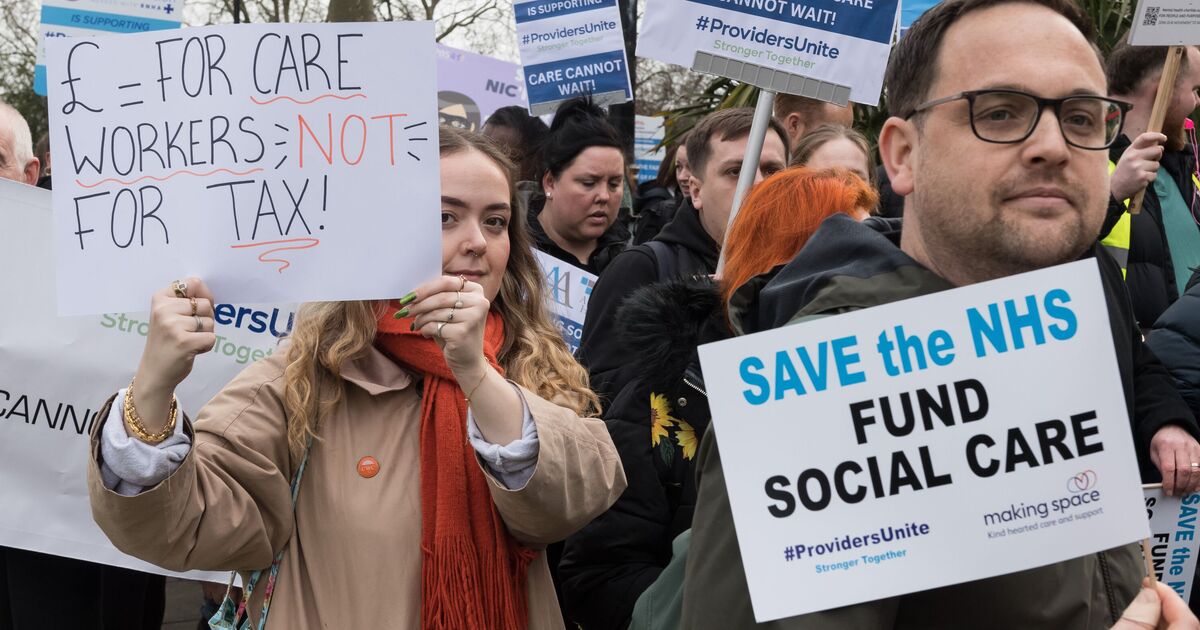Vital services for the elderly, people with disabilities and the terminally ill will be cut because of the Chancellor’s National Insurance increase, social care providers warned.
They described the tax hike as “the final straw” after a rally where staff and managers from across the country marched on Parliament to call for more support.
Those attending included Stephen Trowbridge, Managing Director of First City Care Group which employs 400. He said: “I have never been as worried as I am now”.
The Providers Unite campaign, backed by the National Care Association, is warning that increases in employee National Insurance contributions and a hike in the minimum wage announced by Chancellor Rachel Reeves will £2.8billion. Many services are provided by businesses or charities funded by cash-strapped local councils, which say they cannot afford to increase payments.
Mr Trowbridge said his firm, which employs 400, would see costs increase by £400,000.
Also at the rally was Paul Growney, Chief Executive of Caring Connections, which has 250 staff and supports 500 people including older people with long term conditions. He said the National Insurance changes would cost his non-profit business £200,000.
“The Treasury is saying there is no money. Nobody is listening.”
Nadra Ahmed, Executive Co-Chairman of the National Care Association, said: “The social care sector has been neglected by successive governments but this will be the final straw. This is an abuse of power and it has got to stop.”
And Karoline Gerlich of the Care Workers Charity said: “We are here because we are worried the National Insurance increase will mean people who need social care services will get less hekp with medication, less personal care and less companionship.”
Those in need for care were forced to languish on a long waiting list even before the National Insurance increase, with 418,029 people waiting for an assessment of their needs, for care and support or a direct payment to begin.
Councils warned they could not afford to increase fees to make up for the extra costs care providers face. David Fothergill, Chairman of the Local Government Association’s Community Wellbeing Board, said: “Councils are acutely aware of the pressures facing care providers and they see the impacts this is having. Years of underfunding, rising demand, and workforce shortages have left councils making incredibly tough decisions, and urgent government funding is needed to prevent vital services from collapsing.
“The acute financial position is exacerbated by short term government funding and decisions such as the increase in employer national insurance contributions affecting social care providers. The ongoing workforce crisis only worsens the situation – we need a strategy addressing pay, retention, and parity with NHS roles.
“Care providers and councils are being pushed beyond what is workable, without sustainable investment, services will struggle, with devastating consequences for people who draw on care and support.”
The Government has launched an independent commission into adult social care to be chaired by The Baroness Casey of Blackstock. It will work with care and support, families, staff, politicians and the public, private and third sector to make recommendations for how to rebuild the adult social care system to meet the current and future needs of the population.







